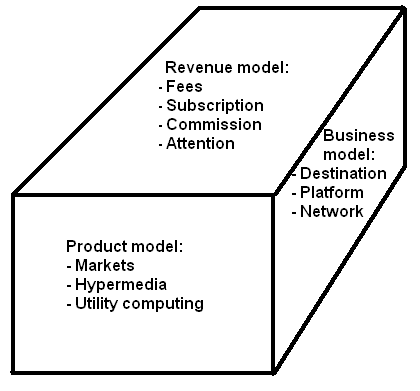About a month ago, I went to a conference filled with journalists and I couldn’t help but ask them what they thought about blogs and its impact on their profession. Predictably, they weren’t too happy about it. Unpredictably however, were the reasons for it. It wasn’t just a rant, but a genuine care about journalism as a concept – and how the blogging “news industry” is digging a hole for everyone.
Bloggers and social media are replacing the newspaper industry as a source of breaking news. What they still lack, is quality – as there have been multiple examples of blogs breaking news that in the rush to publish it, turns out it was in fact fallacious . Personally, I think as blogging evolves (as a form of journalism) the checks and balances will be developed – such as big names blogs with their brands, effectively acting like a traditional masthead. And when a brand is developed, more care is put into quality.
Regardless, the infancy of blogging highlights the broader concern of “quality”. With the freedom for anyone to create, the Information Age has seen us overload with information despite our finite ability to take it all in. The relationship between the producer of news and consumer of news, not only is blurring – but it’s also radically transforming the dynamics that is impacting even the offline world.
Traditionally, the concept of “information overload” has been relegated as a simple analysis of lower costs to entry as a producer of content (anyone can create a blog on wordpress.com and away you go). However what I am starting to realise, is the issue isn’t so much the technological ability for anyone to create their own media empire, but instead, the incentive system we’ve inherited from the offline world.
Whilst there have been numerous companies trying to solve the problem from the demand side with “personalisation” of content (on the desktop , as an aggregator , and about another 1000 different spins), what we really need are attempts on the supply side, from the actual content creators themselves.
Too much signal, can make it all look like noise
Information overload: we need a supply side solution
Marshall Kirkpatrick , along with his boss Richard McManus , are some of the best thinkers in the industry. The fact they can write, makes them not journalists in the traditional sense, but analysts with the ability to clearly communicate their thoughts. Add to the mix Techcrunch don Michael Arrington , and his amazing team – they are analysts that give us amazing insight into the industry. I value what they write; but when they feel the stress of their industry to write more, they are not only doing a disservice to themselves, but also to the humble reader they write to. Quality is not something you can automate – there’s a fixed amount a writer can do not because of their typing skills but because quality is a factor of self-reflection and research.
The problem is that whilst they want, can and do write analysis – their incentive system is biased towards a numbers system driven by popularity. The more people that read and the more content created (which creates more potential to get readers) means more pageviews and therefore money in the bank as advertisers pay on number of impressions. The conflict of the leading blogs churning out content , is that their incentive system is based on a flawed system in the pre-digital world, which is known as circulation offline, and is now known as pageviews online.
A newspaper primarily makes money through their circulation: the amount of physical newspapers they sell, but also the audited figures of how many people read their newspaper (readership can have a factor of up to three times the physical circulation ). With the latter, a newspaper can sell space based on their proven circulation: the higher the readership, the higher the premium. The reason for this is that in the mass media world, the concept of advertising was about hitting as many people as possible. I liken it to the image of flying a plane over a piece of land, and dropping leaflets with the blind faith that of those 100,000 pamphlets, at least 1000 people catch them.
It sounds stupid why an advertiser would blindly drop pamphlets, but they had to: it was the only way they could effectively advertise. For them to make sales, they need the ability to target buyers and create exposure of the product. The only mechanism available for this was the mass media as it was a captured audience, and at best, an advertiser could places ads on specialist publications hoping to getter better return on their investment (dropping pamphlets about water bottles over a desert, makes more sense than over a group of people in a tropical rainforest). Nevertheless, this advertising was done on mass – the technology limited the ability to target.
Advertising in the mass media: dropping messages, hoping the right person catches them
On the Internet, it is a completely new way to publish. The technology enables a relationship with a consumer of content, a vendor, a producer of content unlike anything else previously in the world. The end goal of a vendor advertising is about sales and they no longer need to drop pamphlets – they can now build a one on one relationship with that consumer. They can now knock on your door (after you’ve flagged you want them to), sit down with you, and have a meaningful conversion on buying the product.
“Pageviews” are pamphlets being dropped – a flawed system that we used purely due to technological limitations. We now have the opportunity for a new way of doing advertising, but we fail to recognise it – and so our new media content creators are being driven by an old media revenue model.
It’s not technology that holds us back, but perception
Vendor Relationship Management or (VRM) is a fascinating new way of looking at advertising, where the above scenario is possible. A person can contain this bank of personal information about themselves, as well as flagging their intention of what products they want to buy – and vendors don’t need to resort to advertising to sell their product, but by building a relationship with these potential buyers one on one. If an advertiser knows you are a potential customer (by virtue of knowing your personal information – which might I add under VRM, is something the consumer controls), they can focus their efforts on you rather than blindly advertising on the other 80% of people that would never buy their product). In a world like this, advertising as we know it is dead because we know longer need it.
VRM requires a cultural change in our world of understanding a future like this. Key to this is the ability for companies to recognise the value of a user controlling their personal data is in fact allowing us new opportunities for advertising. Companies currently believe by accumulating data about a user, they are builder a richer profile of someone and therefore can better ‘target’ advertising. But companies succeeding technologically on this front, are being booed down in a big way from privacy advocates and the mainstream public. The cost of holding this rich data is too much. Privacy by obscurity is no longer possible, and people demand the right of privacy due to an electronic age where disparate pieces of their life can be linked online
One of the biggest things the DataPortability Project is doing, is transforming the notion that a company somehow has a competitive advantage by controlling a users data. The political pressure, education, and advocacy of this group is going to allow things like VRM. When I spoke to a room of Australia’s leading technologists at BarCamp Sydney about DataPortability, what I realised is that they failed to recognise what we are doing is not a technological transformation (we are advocating existing open standards that already exist, not new ones) but a cultural transformation of a users relationship with their data. We are changing perceptions, not building new technology.
To fix a problem, you need to look at the source that feeds the beast
How the content business will change with VRM
One day, when users control their data and have data portability, and we can have VRM – the content-generating business will find a light to the hole currently being dug. Advertising on a “hits” model will no longer be relevant. The page view will be dead.
Instead, what we may see is an evolution to a subscription model. Rather than content producers measuring success based on how many people viewed their content, they can now focus less on hits and more on quality as their incentive system will not be driven by the pageview. Instead, consumers can build up ‘credits’ under a VRM system for participating (my independent view, not a VRM idea), and can then use those credits to purchase access to content they come across online. Such a model allows content creators to be rewarded for quality, not numbers. They will need to focus on their brand managing their audiences expectations of what they create, and in return, a user can subscribe with regular payments of credits they earned in the VRM system.
Content producers can then follow whatever content strategy they want (news, analysis, entertainment ) and will no longer be held captive by the legacy world system that drives reward for number of people not types of people.
Will this happen any time soon? With DataPortability, yes – but once we all realise we need to work together towards a new future. But until we get that broad recognition, I’m just going to have to keep hitting “read all” in my feed reader because I can’t keep up with the amount of content being generated; whilst the poor content creators strain their lives, in the hope of working in a flawed system that doesn’t reward their brilliance.








